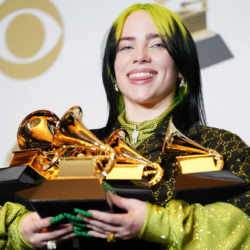🎧 How COVID-19 Changed the Way We Hear Music
When the COVID-19 pandemic officially broke out on March 11, nearly every major form of entertainment was impacted. Sports events were suspended, television production paused, and major music festivals and concert tours were canceled or delayed. The social media impact on the music industry quickly became one of the most significant shifts during this time.
📉 The Decline of Traditional Music Models
As the world entered self-isolation, media consumption patterns changed dramatically. While streaming platforms like Netflix saw record-breaking subscriber growth, the music industry suffered a major blow. Billboard reported that U.S. album sales fell by 29% by the end of March 2020—marking the lowest figures since the early 1990s. For many artists, revenue from physical albums and live performances dried up overnight.
🎥 The Social Media Impact on the Music Industry
With concerts and tours canceled, artists turned to social media platforms to maintain visibility and engage their audiences. This shift signaled a massive social media impact on the music industry, as performers began using live video to connect with fans in real time.
Live streaming gained popularity across Instagram, Facebook, and Twitter, offering musicians a new stage from their living rooms. According to Kevin O’Donnell, Twitter’s music director, the pandemic ushered in an unprecedented era of online engagement: “It’s amazing how artists are coming together to bring joy and comfort to fans through live content.”
One standout example is Toronto rapper Tory Lanez, whose Quarantine Radio on Instagram Live attracted hundreds of thousands of viewers. When Drake joined his stream on March 31st, it hit a record 310,000 viewers—demonstrating how effective live streaming became for artists during the crisis.
📱 TikTok Music Trends Take Over
Another key player in the social media impact on music industry is TikTok. Though known for short videos, TikTok’s role in music promotion has grown rapidly. A company spokesperson noted that music plays an emotional role on the platform, helping both fans and artists navigate difficult times. Many artists found viral success through TikTok challenges, hashtag trends, and dance routines.
As lockdowns continued, TikTok became a powerful tool for song discovery, launching breakout hits and helping independent artists reach millions. For many musicians, TikTok offered a low-cost, high-reach alternative to traditional marketing methods.
🌐 Enter the Virtual Concert Era
With the traditional music model under pressure, virtual performances became a vital survival strategy. Many artists launched their own virtual concerts, performed from home studios, and monetized their performances through donations, merchandise, or exclusive online access.
Canyon Entertainment Group recognized this shift and launched its own virtual concert series to help artists
📲 Follow us on social media:
[Canyon Entertainment Group | Facebook] | [Canyon Entertainment Group (@canyonentgroup) • Instagram photos and videos] |
Read more blogs click below:
6 ways to promote your music career
How student can use music to improve learning benefits



